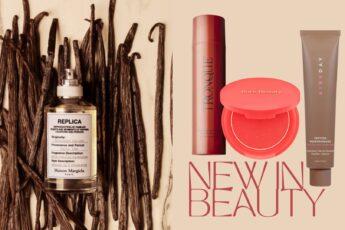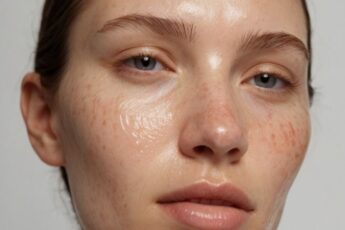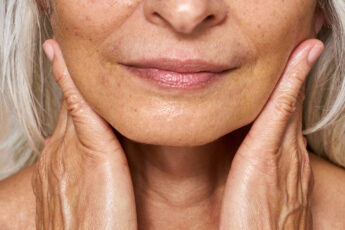Ask any beauty guru what is the best product for a specific skin concern and he/she will always say to check the skincare ingredients, even on their fave brands. When it comes to skincare here at CF, ingredients are the most important thing, doesn’t matter how chic, glossy or appealing the packaging is or which marketing language they have used (glowy, plumpy, flawless…) because brands can say almost all they want but for us, what really matter is to help you to understand what are the best ingredients that actually works for you and where are you spending your money.
Have you ever experienced the sensation of flipping over the packaging of your face cream or serum and feel like is written in another language? Hopefully, the next time you’re stumped by an ingredient label you’ll know what you are actually buying and which benefits you should expect after using them thanks to Dr. Simone Matousek – Skintillation Founder who spoke with the CF team all things key ingredients to look for in skincare products.
What are the best skincare ingredients?
Dr. Simone Matousek shares with us her thoughts on the best skincare ingredients from how to use AHA and BHA, to vitamins like A or C, the list grows and grows.
Skincare Ingredients you Need to Know Now
Alpha and Beta Hydroxy Acids
Alpha hydroxy acids are one of our favorite skincare ingredients at CF, they are water-soluble substances that act as chemical, as opposed to physical, exfoliants (which are grains or seeds in cleansers). Chemical exfoliators break bonds between dead skin cells making them easier to be shed from the skin.
Beta-hydroxy acids are fat-soluble and penetrate deeper than AHAs, are good for oily skin, and help with clogged pores. The most commonly found beta hydroxy acid in skincare is salicylic acid and helps with acne management.
Antioxidants
Oxidative damage gradually accumulates throughout life and is the major cause of skin damage and aging reason enough to add this skincare ingredient into your daily routine.
The production of reactive oxygen species (ROS, some of which are known as free radicals) occurs normally in the process of normal oxygen metabolism.
In times of stress, (as the ones we are living at the moment), due to UV induced damage, environmental damage, or bad diet, ROS increases a lot. These will cause eventually DNA, damage, increased inflammation and collagen degradation.
This is why a daily usage of antioxidants is the best way to prevent this damage from accumulating.
Apart from other skincare ingredients such as Vitamin C, E, and B3 which are all antioxidants by themselves, there is also the astaxanthin (an antioxidant even more potent than Vitamin C), Coenzyme Q.
Hyaluronic Acid
Hyaluronic acid is a glycosaminoglycan or sugar molecule found in our own bodies, and like collagen and elastin, declines with aging, so if you’re starting to see some undeniable aging signs on your skin, this skincare ingredient should definitely be a must for you. The highest amount of hyaluronic acid in the body is found in the skin extracellular matrix (jelly-like material that surrounds your skin cells).
Lower molecular weight hyaluronic acid penetrates deeper into the skin and therefore hydrates the deeper layers of the skin. The higher molecular weight stays closer to the surface (makes visible wrinkles look immediately better).
The unique Wrinklase Day complex contains a mix of mostly low molecular weight hyaluronic acid for deeper delivery and hydration and a much smaller amount of a higher molecular weight to ensure your existing lines look better as well.
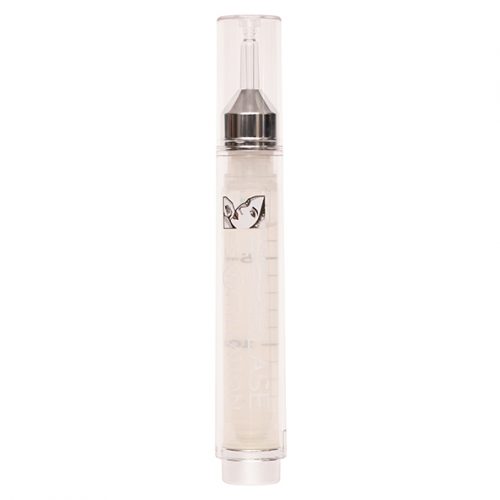
Now you get why this skincare ingredient shouldn’t be missing in your bathroom self, right? It provides the best of both worlds; deeper hydration and immediate improvement of wrinkles Dr. Simone says.
Peptides
Peptides can be thought of as micro-proteins or chains of amino acids which are the simplest building blocks of protein. As the skin (ie collagen and elastin) is made up largely of proteins, these skincare ingredients can target specific aspects of collagen synthesis and degradation. The term peptide is a broad term for thousands of different compounds. It is their specific structure and activity that determines whether they are effective or not in anti-aging.
Peptides are easily found in products like the Wrinklase night:
- Collagen synthesis boosting of the main types of collagen found in the skin.
- Collagen protection-inhibit enzymatic destruction of collagen.
- Collagen organization-ensures of fibrils of collagen have a uniform diameter and are regularly spaced.
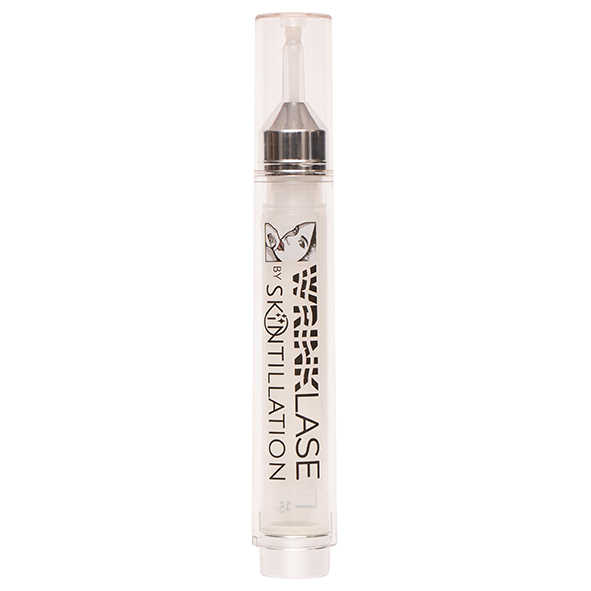
Another peptide found in the Wrinklase night works on specifically targeting the process of muscle contraction. By mimicking a native peptide it weakens muscle contraction at the receptor level at the junction of the muscle and nerve. It acts on exactly the same pathway as the botulinum toxin does, but the benefit of this is that it does not involve injections and is delivered through an ultra-light moisturizer.
Vitamin A
Vitamin A compounds are some of the most widely researched skincare ingredients.
Retinoic acid has been used for over 40 years, initially as an acne treatment, and subsequently found to reduce wrinkles and sunspots. Weaker cosmeceutical forms need to undergo activation in the skin to retinoic acid.
This powerful skincare ingredient has around 20 times the potency of retinol. Although many companies do not reveal the percentages, the maximum available is 2%, however, most formulations use much less. They are more gentle than retinoic acid but their potency is not even close to prescription-strength which can be formulated in a range from 0.25-1%. With appropriate strength adjustment to the side effects, most people eventually tolerate retinoic acid and love its impressive anti-aging effects. This skincare ingredient is also an exfoliating agent so it might cause dryness and photosensitivity, however is a very effective anti-ageing tool. Side effects can be managed by using appropriate hydrating products and sun protection.
FYI: Vitamin A should not be used while pregnant or attempting to fall pregnant.
Vitamin B3 (niacinamide)
This skincare ingredient is also known as the multitasker for any type of skin as it does almost everything you’ll be looking for, to mention a few of the benefits of this oldie but goodie:
- Repairs DNA damage from the sun and other environmental pollutants
- Protects against oxidative damage
- Strengthens the skin barrier and preserves hydration
- Reduces the size of visible pores over time
- Reduces pigmentation and age spots
- Reduces redness and blotchiness through its anti-inflammatory action
- Improves acne issues through its anti-inflammatory action and regulation of oil production
Vitamin C
Vitamin C derivatives are preferred in cosmeceuticals compared to their pure form (ascorbic acid) due to their increased stability, efficacy, and potency. Derivatives are more stable, penetrate the skin better, and therefore produce better results in the skin at lower concentrations.
It is important to pick a stable form of this skincare ingredient, otherwise, it may have no activity by the time it reaches your skin.
FYI: Vitamin C degrades rapidly when exposed to light.
Vitamin C precursors are some of the most stable formulations out there as they are converted to Vitamin C in the skin for maximum efficacy we are talking about the Ascorbyl Tetraisopalmitate.
If you are looking for a more natural form of this antioxidant, Kakadu plum is a great source of Vitamin C, with the fruit being adapted to the harsh climate of the Australian Northern territory.
Vitamin E
This skincare ingredient is one of the most common in skincare and it can be found in many moisturizers, makeup, and facial oils.
But, what are some of the main benefits of this vitamin?
- Acts as an antioxidant that fights free radicals and protects the skin from environmental damage -moisturizes and strengthens the skin barrier- reduces the appearance of wrinkles and makes the skin feel softer (dry skin looks more wrinkly and aged).
- Is anti-inflammatory so can be soothing to sensitive skin -some studies suggest it can reduce redness after sunburn and also improve natural skin protection against UV radiation.
- Improves scars- some evidence vitamin E oil may do this, however, inconclusive; its benefit may come from the hydration effects.
- Used in conjunction with Vitamin C it is thought to have synergistic free radical fighting effects and protecting the skin from UV damage.




